
Words
Mark Allison, David Jenkins, Ella Kemp, Hannah Woodhead, Adam Woodward
Illustration
A countdown of the greatest chart-toppers, floor-fillers and musical curios ever composed for film.
Mia and Vincent twisting to Chuck Berry. Wayne and Garth headbanging to Queen. Renton overdosing to Lou Reed. When a film really nails a needle drop, you feel it. But while creating an effective jukebox playlist has become an art in itself, perfected by the likes of Martin Scorsese and Quentin Tarantino, using pre-existing music in a movie can have its drawbacks. Easy Rider may have captured the free-wheeling spirit of the 1960s thanks in part to its prominent use of Steppenwolf’s ‘Born to be Wild’, but a piece of popular music can take on different meanings over time.
Sometimes, of course, a filmmaker will reach out to a musician they admire asking them to contribute to a specific project. There is a long and rich tradition of this – but what are the all-time best original songs written for films? After carefully thumbing through our 7” collection, we’ve hand-picking 50 choice cuts for your delectation. You’ll no doubt recognise many of the songs listed below from now iconic scenes, and hopefully there’s one or two more obscure tracks you’ll be discovering for the first time.
The ranking of these songs was, naturally, a subjective exercise, but in many instances wider cultural relevance was as much a deciding factor as personal taste. For the sake of brevity, we’ve chosen to omit orchestral scores and music from Disney films (sorry, Frozen fans), as well as songs featured in conventional musicals, both classic and contemporary. We’ve also limited ourselves to one Bond film, just to keep things interesting.
Here are the 50 best original songs written for movies, embedded below so you can listen as you peruse the list. Think we’ve missed something? Let us know @LWLies
Written by Andrew Cedar, Justin Franks, Charlie Puth and Cameron Thomaz; performed by Wiz Khalifa ft. Charlie Puth
When Paul Walker died in a car accident in 2013, the Fast and the Furious lost one of its most beloved stars. His final appearance as Brian O’Conner in Furious 7 was marked with a touching tribute at the film’s close, in which O’Conner bids farewell to long-time friend Dominic Toretto, played by Vin Diesel. Wiz Khalifa’s verses on this pop-rap ballad underscore the importance of family (which has always been at the heart of the F&F films) while Puth’s piano melody and vocal hook provide the emotional core. Teamed with a montage highlighting Walker’s 13-year history with the franchise, it’s an emotional but never cloying goodbye. Hannah Woodhead
Written by David Rawlings and Gillian Welch; performed by Tim Blake Nelson and Willie Watson
One of the most surprising moments in The Ballad of Buster Scruggs was this little ditty, which kicks in about five minutes into The Coen Brothers’ anthology western. It’s a simple, folksy cowboy ditty, accompanied by the sight of Tim Blake Nelson’s titular Buster Scruggs slowly ascending to Heaven, strumming a lyre. Now, whether or not a gunslinger like Buster Scruggs would make it to the pearly gates is debatable, but in the context of the film, the sight contrasts with Scruggs’ trigger-happy persona, and sets the stage for the next five stories, all of which grapple with the business of life and death in the Old West. HW
Written and performed by Dean Martin, accompanied by Ricky Nelson
With popular crooners Dean Martin and Ricky Nelson occupying lead roles, Rio Bravo didn’t have much choice but to include a couple of musical numbers amidst the gunfights and frontier-spirit bravado. Thankfully, this country-western tune is so charming that it doesn’t feel forced, providing a perfectly judged moment of respite in the film’s action. It’s a wonderfully atmospheric piece which evokes images of camp fires, Winchester repeaters, and an era since lost to time. Mark Allison
Written and performed by David Hess
Fun fact: the actor who plays the sadistic serial rapist Krug in Wes Craven’s notorious Video Nasty also wrote and performed the film’s soundtrack. The late David Hess may not be a household name but he was a regular fixture of ’70s and ’80s exploitation fodder, appearing in the likes of Hitch-Hike, The House on the Edge of the Park and Swamp Thing. As a songwriter and musician, his claim to fame was that in 1956 he recorded the original version of ‘All Shook Up’, which became a number one single the following year for a certain Elvis Presley. But it’s this ambling, eerie folk ballad for which he deserves to be remembered. Rarely has a song set the tone for a film more aptly: “And the road leads to nowhere…” Adam Woodward
Written and performed by Tom Waits
Tom Waits is one of those rare, decade-spanning artists whose work just gets richer with time. His jazzy, barroom lullaby phase ended, and his creatively fecund, “bang-a-radiator-with-a-croquet-mallet” phase began. Then he somehow found a happy medium between these two buzzing poles in his sporadic, soulful post-2000 output. The original contributions he supplied for the soundtrack to Roberto Begnini’s The Tiger in the Snow are easily the best thing about this maudlin, misfired shocker. ‘You Can Never Hold Back the Spring’ is a gorgeous, tear-jerking example of one of those scratchy, Weimar-inspired, street-corner serenades that Waits seems to write with the same ease the rest of draw breathe. David Jenkins
Written by Karen Orzolek with lyrics by Karen Orzolek and Spike Jonze; performed by Karen O
In the music video for ‘The Moon Song’, Yeah Yeah Yeahs frontwoman Karen O admits that she wrote and recorded the ballad at her dining room table, near where she’d read the script for Spike Jonze’s Her for the first time. Old friends and ex-partners, Jonze and O collaborated once before on the soundtrack for Where the Wild Things Are, but this charming ukulele ballad is notable for its place in the film as much as how sweet and delicate it is in its own right. Performed by Joaquin Phoenix and Scarlett Johansson in the film, it encapsulates the feeling of falling in love after so long alone, and that joint understanding that comes from finding someone who feels like home. HW
Written by Lady Gaga, Andrew Wyatt, Anthony Rossomando and Mark Ronson; performed by Lady Gaga and Bradley Cooper
For the fourth big screen version of A Star Is Born, director Bradley Cooper prevailed upon one of the most recognisable stars in the world to play his leading lady. A film about musicians needs good music, so Lady Gaga’s casting was a perfect choice, and the power ballad penned by Gaga (with assistance from Andrew Wyatt, Anthony Rossomando and Mark Ronson) has become as popular as the film. Blending Jackson Maine’s country twang with Ally’s unmistakable vocals, the song works not just because of Gaga and Cooper’s chemistry, but its positioning within the film. It’s a collaborative effort that brings them together, and demonstrates the very real moment when the titular Star is Born on-stage. HW
Written by Christopher Cross, Burt Bacharach, Carole Bayer Sager and Peter Allen; performed by Christopher Cross
Yacht rock standard bearer Christopher Cross possessed a face for radio, so when MTV came to rule the roost, he was out on his professional ear. His legacy includes a very good self-titled album, and the absolutely soaring theme from the Dudley Moore-starring comedy about a perma-soused English socialite in the Big Apple, Arthur. It’s a song that provides the answer to the hypothetical (but necessary) conundrum of what you would do were you caught between the Moon and New York City, and it contains the kind of sax solo that likely kick-started a thousand unplanned pregnancies. DJ
Written by Kendrick Lamar, SZA, Sounwave and Al Shux; performed by Lamar and SZA
Ryan Coogler handpicked hip hop superstar Kendrick Lamar to produce the soundtrack for Black Panther, bringing a much-needed sense of musical identity to an element often overlooked by Marvel movies. (Remember the Spider-Man and Batman soundtracks of the ’90s and early 2000s? Where did that commitment go?) All the Stars is the jewel in the soundtrack’s crown, appearing over the credits of the film and pairing Lamar with SZA, whose vocals provide a contrast while remaining in dialogue with Lamar’s. Given the confident energy and slick production values of Black Panther, it’s only right that it has an end credits song to match. HW
Composed by Michel Legrand with English lyrics by Alan and Marilyn Bergman; performed by Noel Harrison
Thomas Crown is an almost entirely impenetrable character; an impeccably debonair millionaire played with icy indifference by Steve McQueen. As such, this song – for which French composer Michel Legrand and American lyricists Alan and Marilyn Bergman won the Academy Award for Best Original Song – provides a rare glimpse into the inner workings of his psyche, exposing the listless ennui which drives him to plot elaborate bank robberies the thrill. It’s a perfect example of how film soundtracks can make for an effective form of storytelling. MA
Written by Holger Czukay, Jaki Liebezeit, Michael Karoli, Irmin Schmidt, and Damo Suzuki; performed by Can
German krautrock legends Can released a compilation album of their various contributions to the world of film – a disc handily titled ‘Soundtracks’. Kicking off side B is their astonishing, 14-minute-plus metronomic wig-out ‘Mother Sky’, which featured in Polish director Jerzy Skolomowski’s Swinging London-set psychodrama, ‘Deep End’. The track plays like an alternative sister cut to another of the band’s long-and-winding masterworks, Halleluwah, and its air of fuzzy delirium perfectly chimes with the film’s commitment to wallowing in the shabby dereliction of the Soho side-streets. DJ
Written by Quincy Jones with lyrics by Don Black; performed by Matt Monro
A beautiful red Lamborghini Miura thunders through the Italian Alps, snow-capped peaks fluttering past as a mysterious driver expertly winds his way through picturesque, labyrinthine roads. Beneath this vision of impossible luxury, Matt Monro’s dulcet tones provide a soothing foundation, moulding an almost palpable sense of tranquillity – soon to be brought to a sudden and clattering end. A masterful blend of music and imagery. MA
Written by Giorgio Moroder and Tom Whitlock; performed by Kenny Loggins
A whole host of flavour-of-the-month artists (including Toto, Bryan Adams, REO Speedwagon and Corey Hart) were approached to perform this song before the honour finally fell to Kenny Loggins. As such, this might represent pop music at its most corporate and coldly manufactured by pop legend Giorgio Moroder – but if it results in synth beats like this, who cares? Loggins’ final track is an invigorating slice of ’80s excess which skilfully echoes the macho absurdity of the film. MA
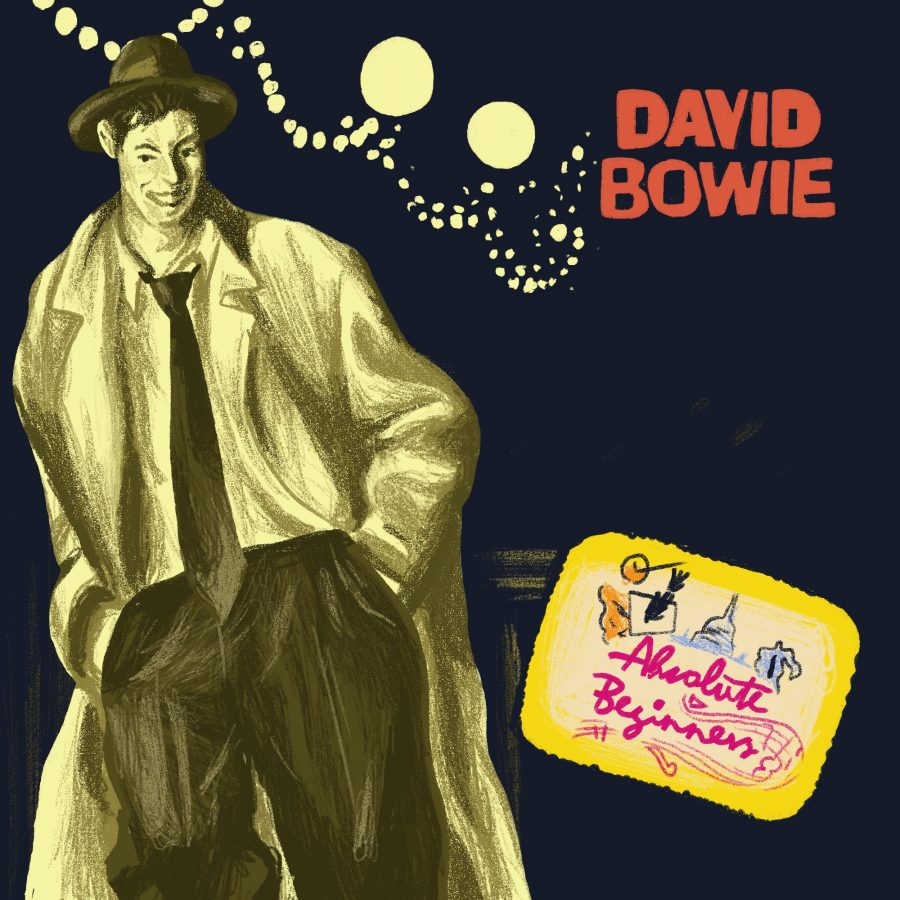
Written and performed by David Bowie
It may not be anyone’s favourite David Bowie song, but ‘Absolute Beginners’ has aged better than a lot of his mid-’80s output. Although Julien Temple’s adaptation of Colin Macinnes’ ode to the British youth culture explosion of the 1950s was derided by critics, Bowie’s hopelessly romantic theme song – with its earnest lyrics and massive saxophone crescendo – peaked at number two in the UK singles chart. Ironically, it signalled the beginning of the end of Bowie’s foray into mainstream pop, having been proceeded by 1987’s experimental, overstuffed art rock fiasco ‘Never Let Me Down’. AW
Written and performed by Isaac Hayes
If ever one needed to define the term “cool”, this song would be the obvious answer. Shaft was a landmark moment in the portrayal of black identity in mainstream cinema, and Isaac Hayes’ soundtrack was similarly influential. With this title track, the composer became the first African-American to win the Academy Award for Best Original Song, and in doing so inspired a new breed of soul musicians. MA
Written by Hal David and Burt Bacharach; performed by BJ Thomas
BJ Thomas is probably known for two things: his track, ‘Hooked on a Feeling’, which was re-recorded (sullied, some might say?) by the pride of Germany’s recording industry, David Hasselhoff; and singing the Bacharach/David-penned depression ditty, ‘Raindrops Keep Fallin’ on My Head’, aka the theme to the wettest western ever made, Butch Cassidy and the Sundance Kid. Kris Kristoffersen and Bob Dylan were both, ahem, “busy” when approached to record the track. Still, BJ makes a fine fist of its lilting melody and soft showtune stylings – and he was duly awarded by the Academy. DJ
Written by John Barry with lyrics by Hal David; performed by Louis Armstrong
Louis Armstrong’s final ever recording is a Bond theme unlike any other; a straightforward testament to the joys of falling in love. In a break from series tradition, the song doesn’t accompany a title sequence of writhing female silhouettes, but a touching montage of James Bond and his future wife, Tracy, frolicking through a summer romance. The song has since become a favourite at weddings, which is deeply ironic considering the film’s tragic conclusion. MA
Written by Frankie Sullivan and Jim Peterik; performed by Survivor
There’s a good reason why it’s nigh on impossible to listen to ‘Eye of the Tiger’ without air boxing along to its punchy beat: Survivor’s Jim Peterik and Frankie Sullivan wrote the song’s rhythm guitar and drum parts to be synchronised with Rocky’s jabs. But the biggest hit of 1982 could have turned out very differently. The story goes that when Sylvester Stallone sent the band an initial edit of Rocky III on VHS, the training montage sequence over which ‘Eye of the Tiger’ would eventually be placed had been cut to Queen’s ‘Another One Bites The Dust’. Thankfully for Survivor, Freddie Mercury and Brian May had already turned Sly down, paving the way for the crowning of a new hard rock champion. AW
Written and performed by Ray Parker Jr
With one of the catchiest riffs ever written, this song has become an indelible part of popular culture. Originally given only a few days to write the track, Ray Jay Parker Jr. found inspiration in late-night TV commercials and duly produced a composition in the style of an advertising jingle. In doing so, he encapsulated the surreal and madcap nature of the film whilst creating a song which exists as a phenomenon in its own right. The 2016 film remake brought with it a misguided cover version by Fall Out Boy, which has so far failed to make such an impact. MA
Written by Harry Nilsson; performed by Shelley Duvall
The very idea that Disney would make a gorgeous, lived-in film folly like Popeye now seems absurd and fanciful – all the more reason to treasure the memory. Art film stalwart Robert Altman takes the Mouse House cash and runs with this druggy relic which stars a wholly indecipherable Robin Williams plays the spinach-quaffing seaman of the title, and the incomparable Shelly Duvall is perfectly cast as his lanky paramour, Olive Oyle. And honey-voiced crooner Harry Nilsson may have earned his place in silver screen infamy with his theme from Midnight Cowboy, ‘Everybody’s Talkin’’, but his soundtrack to Popeye – and its central love song, ‘He Needs Me’ – stand as its equal, if not its better. DJ
Written by Paul Williams and Kenneth Ascher; performed by Kermit the Frog (Jim Henson)
The only song on this list performed by a frog puppet, ‘Rainbow Connection’ is a sweet, impossibly wholesome ballad written by Paul Williams and Kenneth Ascher, who had previously worked together on tracks for the 1976 version of A Star is Born. Initially appearing at the opening of The Muppet Movie, Kermit the Frog sings and plays his banjo at home in his Florida swamp, dreaming of stardom. ‘Rainbow Connection’ has since been covered by everyone from Willy Nelson to Weezer, but Jim Henson’s earnest, nasal rendition as the little frog with big dreams is obviously still the best. HW
Written by Randy Newman; performed by Sarah McLachlan
Country crooner Randy Newman is as much a part of the Toy Story films as Tom Hanks or Tim Allen, but his greatest contribution to the franchise is the song he wrote for Sarah McLachlan to perform in the second film. A melancholy piano ballad about the breakdown of a relationship, in the film it accompanies a montage which explains the tragic backstory of tough cowgirl Jessie, abandoned by her former owner Emily. Newman himself doubted that the scene would work, suspecting children would not be interested, but after observing how an audience reacted in an early screening, he changed his mind – to this day, it’s widely regarded as one of Pixar’s finest moments. HW
Written by Björk with lyrics by Lars von Trier and Sjon Sigurdsson; performed by Björk ft. Thom Yorke (Peter Stormare in the film)
Lars von Trier’s eccentric take on the MGM musical tells of a gold-hearted immigrant (Björk) with failing eyesight who comes a-cropper in spectacularly grim fashion. If you can overlook the fact that this is the cinematic equivalent to torturing kittens, it’s an unforgettable and pioneering work, not least for its extraordinary soundtrack album, ‘Selmasongs’. ‘I’ve Seen it All’ marks a melancholy centrepiece in which our readily self-sacrificing heroine claims that she believes her eyes have served their physical purpose, and all the beauty and horror in the world can just go away now. Includes a sublime assist from Thom Yorke on duet duties, plus sensational use of swooning orchestral arrangements. DJ
Written and performed by Cat Stevens
‘If You Want To Sing Out, Sing Out’ features twice in Hal Ashby’s gently subversive odd couple comedy: first up, it’s intentionally butchered by Ruth Gordon (aka Maude), the actor turning Cat Stevens’ uplifting melody into a jaunty music hall singalong; second, it’s heard at the very end of the film, as Bud Cort’s Harold skips along a grassy cliffedge, banjo in hand, having moments earlier slammed his car into the rocks below. Written while Stevens was recording his fourth studio album, ‘Tea for the Tillerman’, this is the most poignant cut from a soundtrack comprised of existing and original music by the renowned British folk artist – a song about new beginnings and learning to let yourself be free. AW
Written by Ivan Matias, Andrea Martin and Marqueze Etheridge; performed by En Vogue
Sometimes, a song written for a movie can end up becoming an artist or band’s defining statement. Such is the case with ‘Don’t Let Go’, a dramatic deep soul power ballad from En Vogue that, arguably, the California vocal quartet never really bettered. It was written for the soundtrack to 1996’s Set It Off, a film which deserves to be more well known in that it is one of a small handful of female-fronted heist movies – predating the likes Ocean’s 8 by more than two decades. It was kept from the top of the chart by Toni Braxton’s ‘Un-Break My Heart’ – gutting. DJ
Written by Marshall Mathers; performed by Eminem
Eminem is no stranger to releasing hit songs, yet it’s fitting that his first number one is about a once in a lifetime opportunity to turn your life around and make your dreams come true. Lose Yourself was composed by Luis Resto and Jeff Bass, and was the first rap song to win the Academy Award for Best Original Song. Eminem didn’t even show up to collect his award because he thought it had no hopes of winning. But the win solidified the message in his lyrics to pursue your dreams until they become reality. MK
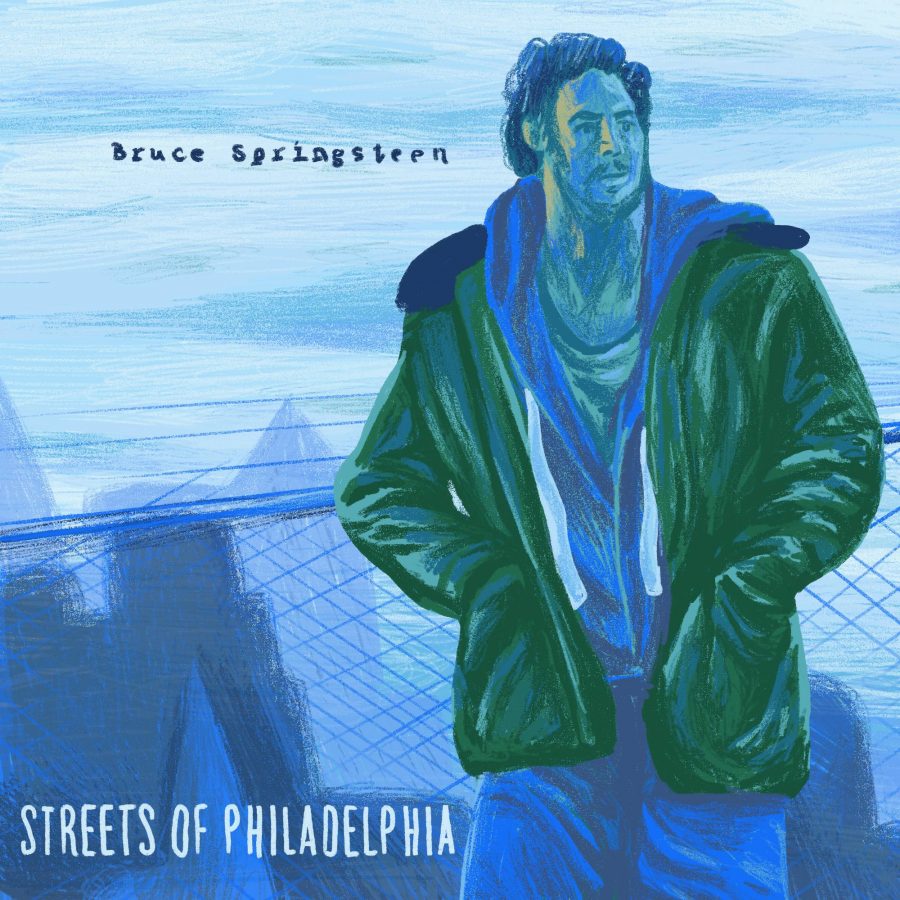
Written and performed by Bruce Springsteen
You might be forgiven for thinking that any musician who’s appeared on the cover of a magazine would save their A material for the album, not for use on the closing credits to some sappy Hollywood movie. The Boss is an exception, as he proffered one of his biggest ever hits to the great Jonathan Demme, for a film that became one of the director’s biggest ever hits. Granted, the tune arrived on the back of perhaps his two weakest studio albums – ‘Human Touch’ and ‘Lucky Town’, both released in 1992. But this bold experiment, with its simple drum machine beat and layered synths combined with touching lyrics that explore the lives of Aids sufferers, saw Bruce double-dipping on the award circuit, taking home silverware in both film and music fraternities. DJ
Written by Nicolas Godin and Jean-Benoît Dunckel; performed by Air
There’s a unique cocktail of sensations to experience when you watch The Virgin Suicides. Sofia Coppola’s debut feature deals in the romantic, ethereal mystery of teenage suburbia as it tries to discover who the five Lisbon sisters really are. You can almost feel the heat emanating from the thick yellow filters, and the hazy nostalgia is increased tenfold by the film’s original score by French electronic duo, Air. Playground Love is the first track on the album, although it compliments the pastel-hued slowness of Coppola’s teenagers perfectly, the song resonates with a more universal feeling of a dreamlike, careless youth outside the film. It feels like the mother of Portishead’s ‘Glory Box’ and a close relative of ‘Paradise Circus’ by Massive Attack – forming a gorgeous trilogy of haunting, delicate trepidation. Ella Kemp
Written and performed by Sufjan Stevens
Indie folk darling Sufjan Stevens has been quietly enchanting fans with his spirituality-tinged melodic lo-fi pop since he began his career in 1995, and in 2016, filmmaking fan Luca Guadagnino approached him to ask if Stevens would be interested in narrating his film Call Me By Your Name. He declined, but offered to instead contribute songs for the soundtrack. While Visions of Gideon, which plays at the film’s close, might be a bonafide tearjerker, Mystery of Love is its sweeter counterpart. The acoustic strings-and-piano ballad kicks in on screen when young Elio and Oliver take a trip together, and its hopeful, heartfelt sentiment reflects the purity of first love. HW
Written and performed by Elliott Smith
On the laundry list of head-slammingly bad decisions made by the voting members of the Academy of Motion Picture Arts and Sciences, is there any more egregious than the awarding of Best Original Song to Celine Dion’s syrupy karaoke staple ‘My Heart Will Go On’ over Elliott Smith’s ‘Miss Misery’? Yes yes, we know that the doling out of little gold-plated statuettes is essentially meaningless, but we can’t think of a more deserving recipient than this achingly beautiful acoustic elegy, which closes out Gus Van Sant’s indie crowd-pleaser. Smith’s performance at that year’s Oscars ceremony never fails to send a shiver down our spine. AW
Written and performed by Aimee Mann
In a film like Magnolia, you’ve got to hold onto every chance of reassurance that you can get. Paul Thomas Anderson’s blossoming emotional odyssey presents and picks on 12 alienated souls, all battling loneliness and searching for happiness. This is why Aimee Mann’s ‘Save Me’ has such a cathartic impact: the wistful, imploring ballad gives Magnolia’s alienated and overwhelming pool of emotions a common outpour, a common relief. It’s a heartbreaking song that could just about muffle the choked up tears that escape you while watching the film. Apparently, Mann’s past discography inspired Anderson while writing the script, which would explain why the final soundtrack feels so integral to the film’s core. Like the film, it’s a raw, honest song which feels simultaneously intimate and epic in the intensity of emotion it’s capturing. You’ll never be able to shake it. EK
Written and performed by Jimmy Cliff
In The Harder They Come, we get to hear Jimmy Cliff’s jaunty reggae standard many, many, many times. We hear him writing it, recording it, then it’s played in the background as his drug-pushing outlaw, Ivan, attempts to evade the police. This was the first of two features from the Jamaican director Perry Henzell, and it’s a vital and unflinching document of hardscrabble lives and thwarted ambition in Kingston during the early ’70s. The soundtrack album became a classic, and is often credited with popularising reggae in the West. The pulsing title track remains, to this day, a 24-carat banger. DJ
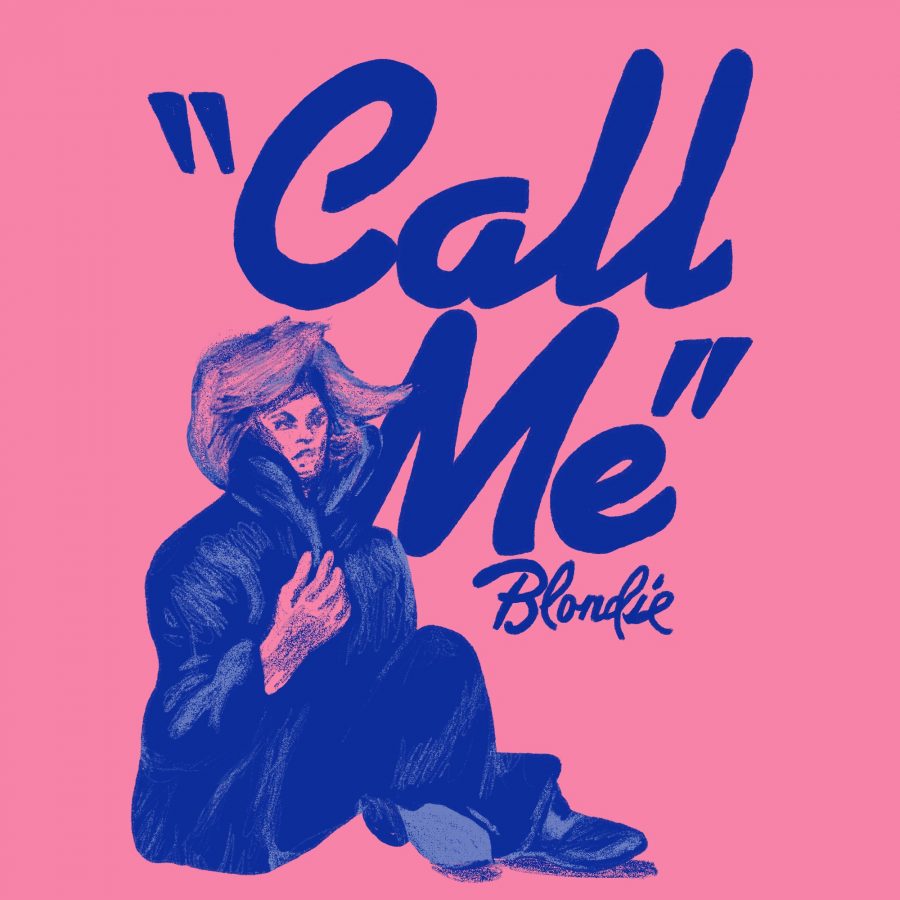
Written by Debbie Harry and Giorgio Moroder; performed by Blondie
When Blondie were approached by Italian disco producer Giorgio Moroder to help compose and perform the theme for 1980’s American Gigolo, they were already second in line after Stevie Nicks from Fleetwood Mac declined the offer. But when the end product provides such a theme song and then becomes the top-selling single of the year, it’s safe to say it probably all worked out for the best. The story on the upbeat track is told from the perspective of the main character in the film, a male prostitute played by Richard Gere. It seems fitting that the voice of new wave poster girl Debbie Harry accompanies a central performance that put Gere on the map as a sex symbol of his own era. EK
Written by Ray Evans and Jay Livingston; performed by Nat King Cole (Charlie Spivak and Tommy Lynn in the film)
This gentle ballad owes its existence to the persistence of a little-known music publisher named Larry Shayne. It was Shayne who pestered Nat King Cole to make ‘Mona Lisa’ his next single for Capitol Records (“I did that song just to get that Shayne fellow out of my hair,” the American jazz pianist and vocalist later confessed), the song having gone through multiple revisions en route to being used in the World War Two-set Alan Ladd vehicle Captain Carey, USA. Songwriting duo Ray Evans and Jay Livingston repurposed their original arrangement specifically for a scene where Ladd’s character is alerted to the Nazis’ imminent arrival by a local singer, although even this was changed in the final edit. Cole’s timeless version, though, remains untouchable. AW
Written by Henry Mancini with lyrics by Johnny Mercer; performed by Audrey Hepburn
Audrey Hepburn’s turn in Breakfast at Tiffany’s is one of cinema’s most enduring performances, her image plastered on the bedroom walls of university students across the globe. This rendition of ‘Moon River’, a song composed specifically for Hepburn by Henry Mancini and Jonny Mercer, is a testament to the immense talent which made her an icon of the screen. It’s a revelatory moment of the film which captures the opposing innocence and melancholy of her character. MA
Written by Angelo Badalamenti with lyrics by David Lynch; performed by Julee Cruise
Alongside Prince’s ‘Purple Rain’, this is a song that’s tough to listen to without wanting to shed a single salt tear. Although Cruise is best known for her contributions to David Lynch’s TV serial, Twin Peaks, providing its tonally crucial opening theme song, this celestial cut from 1986’s Blue Velvet (and her excellent LP ‘Floating Into the Night’, penned and produced by synth godhead Angelo Badalamenti) offered a moment’s divine grace in a film which forcefully exposes an underbelly of putrid nihilism and grotesque sexual violence in picket fenced small-town America. Happy listening! DJ
Written by Quincy Jones, Marilyn Bergman and Alan Bergman; performed by Ray Charles
It is surely one of the greatest introductions to a lead character in cinema history – and we only ever see them from the waist down. On a hazy, sticky evening, a train rolls into town and off it steps a sharply-dressed man carrying a suitcase: it’s Virgil Tibbs (Sidney Poitier), a black detective from Philadelphia who’s been assigned to a murder investigation in smalltown Mississippi. Ray Charles’ gospel-infused title track brilliantly sets the tone for Norman Jewison’s thought-provoking procedural, instantly evoking not just the humidity of the film’s setting but also the pressure-cooker racial prejudice that was still scarily prevalent across the Deep South circa 1967, despite the passing of the Civil Rights Act three years earlier. The film won the Academy Award for Best Picture and, along with Charles’ song, continues to resonate today. AW
Written by Beyoncé Knowles, Cory Rooney, Samuel Barnes and Jean-Claude Olivier; performed by Destiny’s Child
There are undoubtedly a large number of people out there who purely know this 2000s pop banger for its permanent presence on nightclub playlists rather than as the crowning jewel in the soundtrack of McG’s cinematic take on Charlie’s Angels. The anthem for a generation of women who kick ass and take names while also paying their own mortgage, it’s eclipsed its origins, but also speaks to a time when a lot more effort was made generally with the compilation of film soundtracks. Check out the themed music video if you haven’t – it’s aged better than the film. HW
Written by Keith Forsey and Steve Schiff; performed by Simple Minds
John Hughes and Simple Minds: name a more iconic ’80s duo… I’ll wait. Produced by Keith Forsey, who also co-wrote ‘Flashdance… What a Feeling’ and ‘The Heat is On’ from Beverly Hill Cop, ‘Don’t You (Forget About Me)’ was initially passed on by a number of singers including Annie Lennox and Chrissie Hynde; the latter instead suggesting it to her husband, Simple Minds frontman Jim Kerr. Reluctant to record someone else’s material, Kerr was nevertheless persuaded by his bandmates who felt the song would help them break the American market. They were right – ‘Don’t You (Forget About Me)’ knocked Madonna’s ‘Crazy for You’ off the top of the US Billboard chart. They may have shared little in common with the film’s teenage protagonists, but the Glaswegian New Wave group proved a perfect fit for this quintessential high school movie. AW
Written by Artis Ivey Jr, Larry Sanders, Doug Rasheed and Stevie Wonder; performed by Coolio ft. LV
This return trip to the Blackboard Jungle is a bit like Sister Act without the songs and with the addition of a white Whoopi Goldberg. Michelle Pfeiffer, slipping into her wilderness late ’90s after the twin career peaks of Batman Returns and The Age of Innocence, assumes the role of Louanne Johnson, a real-life marine who struggled to transfer instant kill combat techniques to the classroom of an inner-city high school. It ended up being an example of a film that became known purely through the ubiquity of its ace, Stevie Wonder-sampling pop-rap theme song ‘Gangsta’s Paradise’, performed by Coolio and the always-mysterious LV. DJ
Written by John Kander and Fred Ebb; performed by Liza Minnelli
A firecracker with stars in her eyes, Liza Minnelli gives a hypnotic performance of New York, New York for a captivated audience in Martin Scorsese’s 1977 hidden gem. She shines in a fire engine-red suit (which is now emblematic of her version of the song) while a young Robert De Niro watches on. Years of marriage, ambition and an intertwined love of the city and the music all resurface over Although the song was written for and originally performed by Minelli, it only rose to popularity two years later, when crooner Frank Sinatra started performing it during his live performances at Radio City Music Hall. EK
Written by Thom Yorke, Jonny Greenwood, Phil Selway, Ed O’Brien and Colin Greenwood; performed by Radiohead
When director Baz Luhrmann commissioned Radiohead to write a song for his gaudy Shakespeare adaptation, he gave the band free reign with the last thirty minutes of the film. The result was this haunting track, which plays over the end credits and featured on the band’s masterful 1997 album, ‘OK Computer’. In just four-and-a-half minutes, the song encapsulates the ecstasy, tragedy, and wrath of a forbidden romance, arguably with greater poignancy than the preceding two hours of film. MA
Written and performed by Curtis Mayfield
We could have chosen another iconic theme song from a 1972 blaxploitation flick, Marvin Gaye’s ‘Trouble Man’. But how could we resist the combination of Joseph “Lucky” Scott’s strolling bassline and “Master” Henry Gibson’s crisp rototom beat which kicks off ‘Superfly’. And, of course, there’s Curtis Mayfield’s ice-cool vocal track, which effortlessly elevates his own socially-conscious lyrics. The best-selling status of the Super Fly soundtrack might suggest that the film was universally lauded, but in fact it was condemned by the Black community for supposedly glorifying the lifestyle of a Harlem pimp. Really, director Gordon Parks, Jr intended the film as a wake-up call to both black and white America over the ghettoisation of its urban centres. AW
Written and performed by Dolly Parton
With its iconic piano melody and ever-prescient lyrics telling of women’s workplace woes, ‘9 to 5’ is, without a shadow of a doubt, a masterpiece. The title is a reference to 9to5, the National Association of Working Women, which in part inspired Jane Fonda’s idea for the film, but this country anthem is all Parton. Now a mainstay of karaoke booths around the world, it’s an infectious rebel yell with a cracking brass section. Incidentally, it was robbed of the Best Original Song Oscar in 1980, where Irene Carter’s ‘Fame’ triumphed. HW
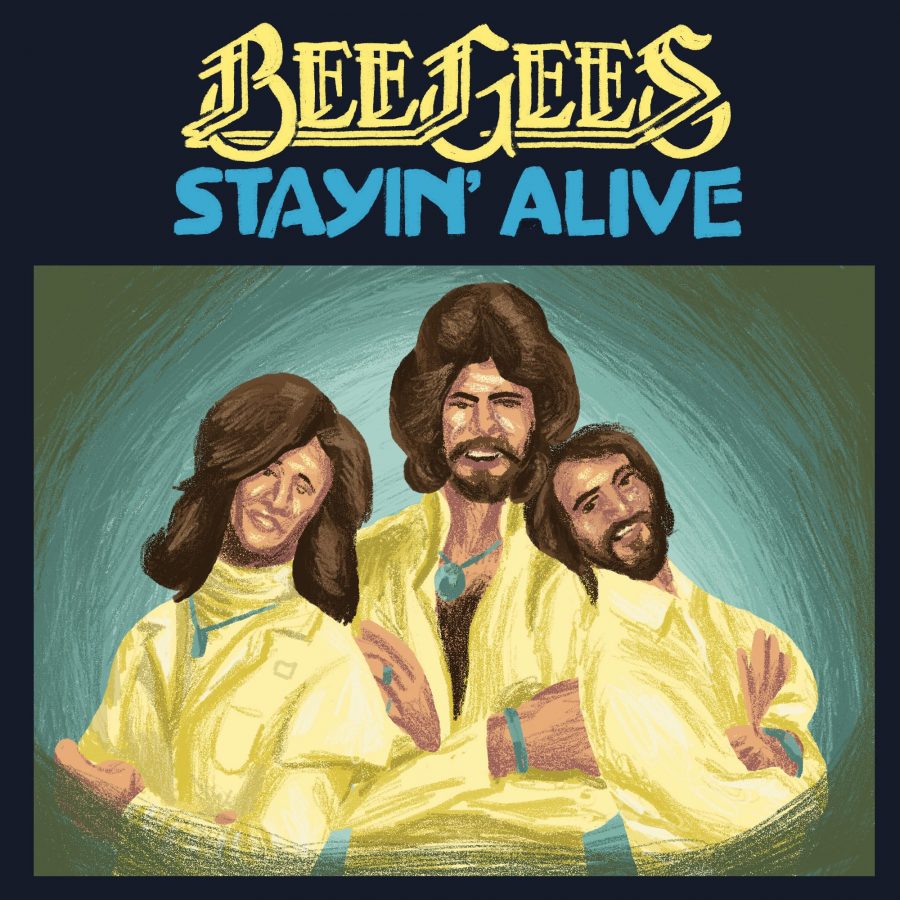
Written by Barry Gibb, Robin Gibb and Maurice Gibb; performed by Bee Gees
If you haven’t strutted down the street with this song blaring in your headphones, emulating John Travolta in the opening scene of Saturday Night Fever… have you truly lived? As with the rest of the film, the enduring impact of this sequence is owed, in large part, to the Bee Gees’ iconic soundtrack. The album proved to be a best seller and revitalised the group’s ailing fortunes, breathing new life into the disco genre in the process, albeit temporarily. MA
Written by Bobby Womack and JJ Johnson; performed by Bobby Womack
Few songs have transcended the film for which they were originally written more emphatically than Bobby Womack’s soul-funk theme for Barry Shear’s blaxploitation-era social critique. Modern audiences are more likely to recognise it in relation to other, later films, namely Quentin Tarantino’s Jackie Brown and Ridley Scott’s American Gangster. Its longevity is a testament to the timeless relevance of Womack’s lyrics and, of course, that irresistible ’70s beat. MA
Written by Paul Simon; performed by Simon & Garfunkel
The story goes that Paul Simon was reluctant to get involved in the music-for-movies game, viewing it as ‘selling out’, but when he met director Mike Nichols, he was impressed enough by him and his little script for a little film called The Graduate that he gave him the benefit of the doubt. It’s just as well – the song went on to become as famous as the film it featured in, earning Simon & Garfunkel two Grammys and appearing in countless films since, including The Lemonheads’ pop-punk rendition which featured in American Pie. HW
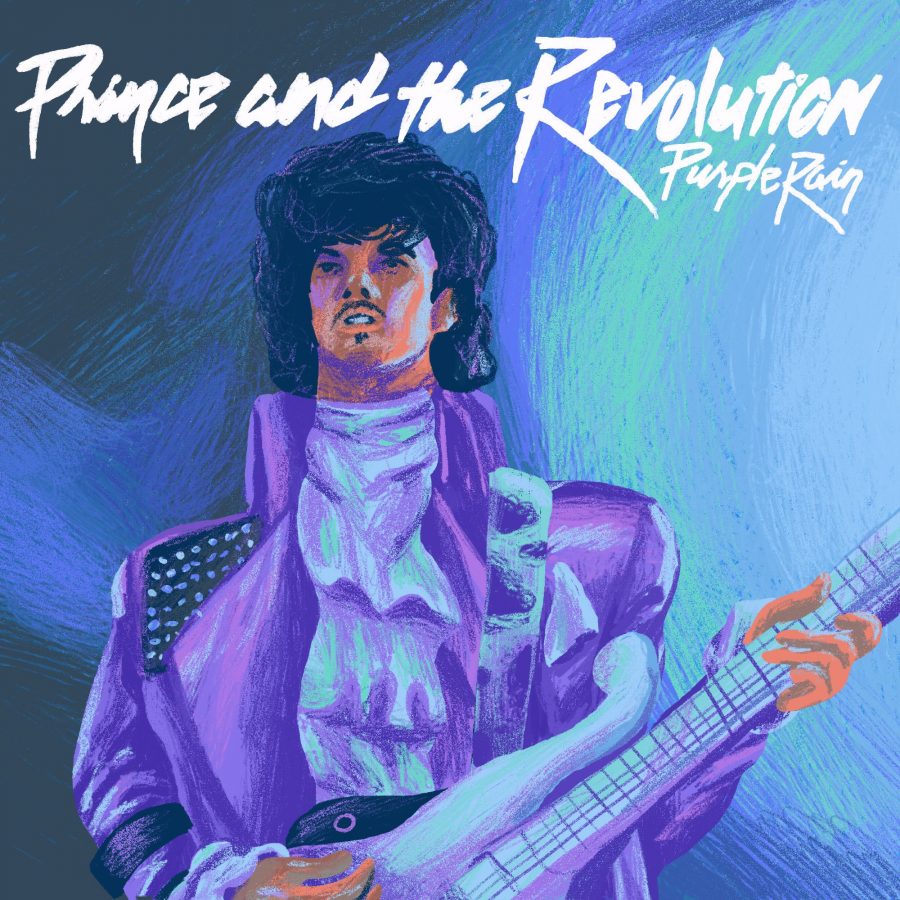
Written by Prince; performed by Prince and The Revolution
When it comes to the fine art of album tracklisting, one of the best decisions ever made was to close out Prince’s seminal 1984 album, ‘Purple Rain’, with the eponymous eight minute and 41 second gospel rock opus (replete with echo drums to bring tears to your eyes). Another canny decision was made when it came to developing the structure of the 1984 musical film of the same name, which also ends on a breathtaking live performance of the title track. It sees Prince assuming the guise of an abused, albeit nattily-dressed chancer named The Kid who just wants to make a name for himself in the music biz. The song’s slow-grind majesty enables him to both get the girl (Apollonia Kotero as Apollonia) and sock it to pop-funk titans (and Prince label mates) Morris Day and the Time. Win-win. DJ
Written and performed by Bob Dylan
It’s the kind of song you feel proud to know, and thankful for the simplicity of its existence. It’s one that you’re so sure is part of your cultural and emotional make up, that to think that it once only belonged to a 1973 western movie seems hard to believe. Covered and given a new identity by Eric Clapton, Guns N’ Roses and even Avril Lavigne, Bob Dylan’s ‘Knockin’ on Heaven’s Door’ feels like a founding anthem of life-affirming rock music. And yet it was first and foremost a track – arguably the best – on the soundtrack to Sam Peckinpah’s western drama, Pat Garrett and Billy the Kid. The powerful ballad is simple and searing, illustrating the gun blazing climactic moment with a sense of heartbreaking finality. Shootouts come and go in movies, but Dylan’s music gives a haunting emotion, heavy with sadness to the scene. EK
Written by Carlton Ridenhour, Eric Sadler, Hank Boxley, Ralph Andrei Duay and Keith Boxley; performed by Public Enemy
When Spike Lee and producer Bill Stephney approached Chuck D about collaborating on the writer/director’s tale of simmering racial tensions in New York City, they weren’t looking for a theme song so much as an anthem – and that’s precisely what Public Enemy delivered. Revolutionary in every sense of the word, this scorching musical protest fixed middle America firmly in its crosshairs while issuing an urgent rallying cry to Gen Xers to stand up and take action. The Long Island hip-hop outfit had already achieved folk hero status within the Black community by 1989, but the success of Do the Right Thing ensured that their message of resistance and self-empowerment spread far beyond this.
A longer studio edit of ‘Fight the Power’ appears on Public Enemy’s 1990 album ‘Fear of a Black Planet’ – complete with a vocal sample lifted from a speech by Chicago attorney and civil rights activist Thomas N Todd – but the version that plays throughout the film is arguably punchier and still more direct. From the opening credits, where Rosie Perez dances furiously to the track, teeth gritted in silent indignation, to Radio Raheem (Bill Nunn) blasting it around Brooklyn on his boombox, this is a song that simply demands to be heard. “Lemme hear you say…” AW
Published 28 Aug 2019

Twelve writers pin their colours to the tentpole in our survey of the best summer movies of the modern era.
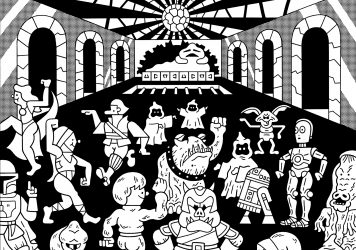
By Cian Traynor
The untold story of the controversial Star Wars floor-filler by the people who wrote it.
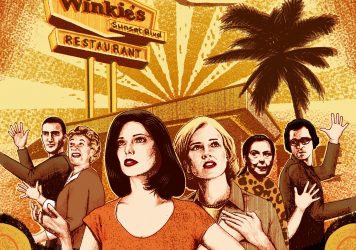
By Adam Nayman
Is David Lynch’s warped Tinseltown satire from 2001 a contemporary riff on one of Hollywood’s classic-era staples?